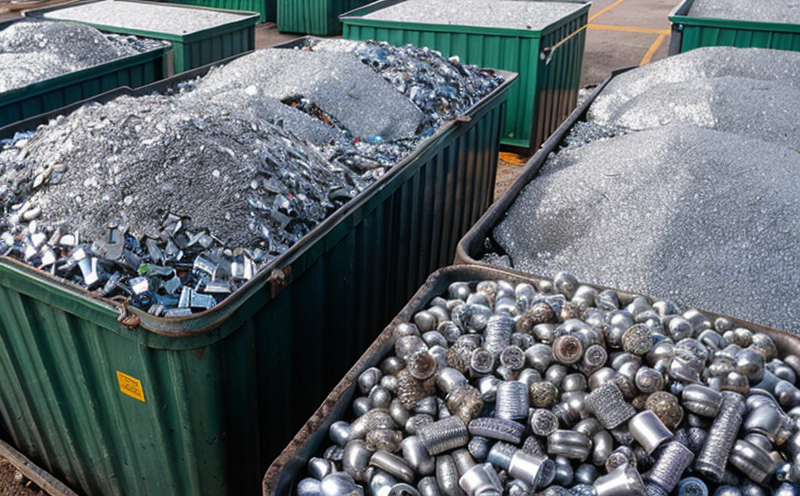ASTM E120 Platinum Group Elements in Scrap Alloys
The ASTM E120 standard is a critical tool used to detect the presence of platinum group elements (PGEs) in scrap alloys. This testing method is essential for ensuring that recycled materials meet high-quality standards, which are vital for industries like automotive, electronics, and jewelry manufacturing.
The process involves the following steps: Firstly, the scrap alloy samples must be prepared according to ASTM E120 guidelines. This preparation includes cleaning the specimens thoroughly to remove any contaminants or residues that could skew results. Next, the samples undergo a series of chemical treatments designed to release PGEs into a form suitable for analysis.
The instrumentation used in this testing is highly sophisticated and typically involves atomic absorption spectroscopy (AAS) or inductively coupled plasma mass spectrometry (ICP-MS). These instruments are chosen for their sensitivity and accuracy, which are crucial when detecting minute quantities of PGEs. The results obtained from these analyses provide a quantitative measure of the platinum group elements present.
The ASTM E120 method is particularly important because it helps in assessing the purity and composition of scrap alloys. This information is critical for industries that rely on high-quality recycled materials to ensure product performance and reliability. By adhering to this standard, manufacturers can minimize risks associated with using inferior or contaminated scrap.
The acceptance criteria for ASTM E120 are stringent, ensuring that only samples meeting specific purity levels are deemed suitable for recycling into new products. This ensures a consistent quality of recycled materials across various industries.
Applied Standards
| Standard Number | Description |
|---|---|
| ASTM E120 | This standard specifies the procedures for detecting platinum group elements in scrap alloys. |
| ISO 9001:2015 | International quality management systems certification, ensuring consistent and reliable results. |
| EN ISO/IEC 17025 | Absence of bias in testing laboratories, ensuring accurate and precise measurements. |
International Acceptance and Recognition
The ASTM E120 standard is widely accepted internationally due to its robustness and reliability. It has been adopted by numerous countries, including the United States, Canada, Europe, and Asia. This global recognition ensures that results from this testing method are universally understood and respected.
Many industries worldwide rely on ASTM E120 for quality assurance purposes. Compliance with these standards is not only beneficial but often a requirement in international trade agreements. By adhering to ASTM E120, businesses can ensure seamless operations across borders and avoid potential delays or rejections due to non-compliance.
The use of internationally recognized standards like ASTM E120 also helps promote fair competition among global manufacturers. It ensures that all participants are held to the same high standards, leading to higher overall quality in recycled materials.
Use Cases and Application Examples
- Automotive Industry: Ensuring the purity of platinum group elements is crucial for catalytic converters that help reduce vehicle emissions.
- Electronics Manufacturing: High-quality recycled materials are essential for producing components like circuit boards, which require precise element composition.
- Jewelry Production: The presence of PGEs can significantly enhance the value and durability of jewelry products.
- Metal Recycling Facilities: These facilities use ASTM E120 to ensure that recycled scrap meets stringent quality standards before being reintroduced into production processes.





